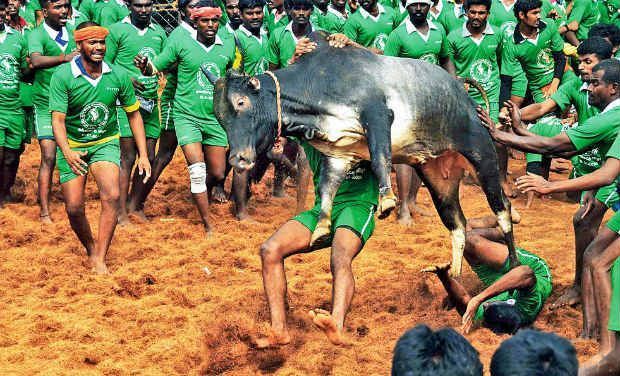
New Delhi: The Supreme Court on Wednesday banned the use of bulls in Jallikattu, a bull-taming sport played in Tamil Nadu during Pongal celebrations.
The bull run is a key part of the rice harvest festival of Pongal in villages in southern India every January. Some foreign tourists travel to the country to watch and take part in the spectacle.
“All living creatures have inherent dignity and a right to live peacefully,” declared Supreme Court Justice K.S. Radhakrishnan in the ruling.
In its order, the apex court directed governments and Animal Welfare Board of India (AWBI) take steps to prevent the infliction of unnecessary pain or suffering on the animals saying all living creatures including animals have inherent dignity and a right to live peacefully and right to protect their well-being.
In the Jallikattu, young men struggle to grab the bulls by their sharpened horns or jump on their backs as the muscular animals, festooned with marigolds, charge down the road.
Unlike the famous running of bulls in Pamplona in Spain, the Indian participants have to hang on to the bulls rather than leap out of their path as the animals thunder by.
Organisers say it is a way for young Indian men to show their bravery. If a man manages to stay on top of the bull for a certain distance, he can win prizes. But the Indian judge said that investigations showed that bulls used in the events were subject to “extreme cruelty and unmitigated” suffering.
The event is also deadly with many men losing their lives over the years, gored by the bulls as the animals seek to shake them off their backs.
The Indian ruling followed a long-running campaign by animal rights activists who say organisers throw chili powder in the bulls’ eyes and pinch their testicles to enrage them before the run.
In the wide-ranging judgement, the judge said people have a duty to protect animals from “beating, kicking, over-driving, overloading, torture, pain and suffering”.


